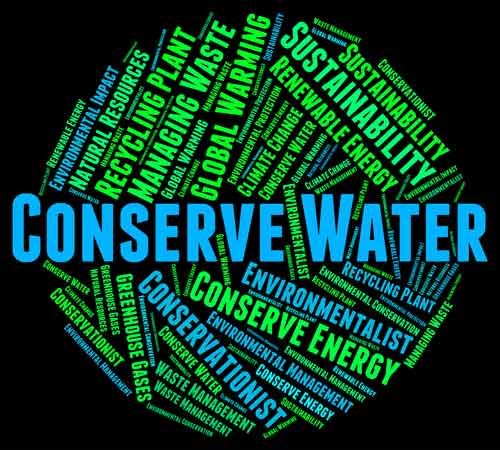Many people will admit that they use water differently in the summer than
they do any other time of the year. You’ll most likely see people
swimming in the summertime than any other time of the year, especially
because of the heat. Even in areas that can be extremely cold throughout
the year, summer can bring heat waves, and it’s even possible for
the heat to hit 100° or more in many areas.
Since it’s hot in the summer, it’s likely that people will want
to cool off by turning on the sprinklers, going into the pool, drinking
more water, and even taking more showers.
Since water is used more excessively in the summertime, conservation is
going to be necessary if you want to use water in the summer as needed,
especially if you don’t want to have a high bill throughout the year.
If you know you’re going to use water a lot more in the summer, then
take the time to conserve your water usage during the rest of the year.
Here are the differences between water usage in the summer as opposed
to other times in the year:
- Water is used a lot more in the warmer months
- You can fill your pool for the summer
- Run the sprinklers for the kids
- Water the grass and plants to keep them green in the heat
- People take more showers in the summer
If you don’t believe that you use water more in the summertime, then
keep your bills, and compare last summer’s bill to the current summer,
and see if they match. It’s likely that you’ll see that the summer
months you’ve been using water more, so you’ll want to ensure
that you keep your water usage at an acceptable level, so you won’t
be overpaying for water.

outside, especially since some of the water will be lost to evaporation
from the summer sun. Don’t overfill the pool because splashing will
cause loss of water too, which means it will need to be refilled, which
wastes water.
It’s always better to have a pool of any size than running the sprinklers,
and if the sprinklers have to be running to let your kids cool down, then
run it when the sun is going down and over the lawn to water the lawn
at the same time. When watering grass and plants, make sure it’s not
too hot out, or the sun is already gone down to avoid evaporation. Those
who have to take more showers in the summer can do so, but time your shower
at five minutes or less, especially if it’s just for cooling down purposes.
You Can Still Conserve Water In The Summer
When you know you’re going to be using a lot of water in the summer,
plan ahead. You have a pool that you plan on filling up, so fill it with
less water than you normally would but to a safe level, and that way you
won’t use more water than you need to and can keep those using the
pool from splashing too much water out of the pool. Also, consider the
fact that you may be drinking a lot more water in the summer.

fridge if it’s as opposed to getting it from the faucet. It’s
well known that the sun will heat up the piping in your home, which means
you may only get warm water from the faucet for a while until it cools
down. Most people would throw the warm water away or let it go to waste,
which means it’s best to get cold water from the fridge, or simply
put ice on the water that first comes from the faucet, even if it’s
very warm water.
Other ways to conserve water in the summertime is by not watering plants
every single day. If plants are put in the right soil, then they may only
need to be watered every few days, especially if the soil holds onto the
water long enough to nourish the plants. Many don’t realize that plants
die from overwatering instead of under watering because they get too much
water and die. When you know your summer water usage methods, then examine
them in order to learn how you can conserve water and not waste water
in your home.
Water Conservation Is Easier Than You Think
There are other ways to save water in your home, no matter what time of
year it is. Turn off the water when you’re not currently showering,
don’t run the faucet while you brush your teeth, use very little water
when running the garbage disposal. Also, if you do cleaning around the
home, catch water in a bucket instead of running water over a towel, which
is wasteful. You can come up with many different ways to save water, so
examine your home’s water usage, and stop the water waste.
Check For Water Waste Around Your Home
A common way that water is wasted around the home is through leaks, which
many people don’t know about until it’s too late. Leaks can easily
be anywhere in the home, especially in the toilets, faucets, water heater,
hoses and more. Any plumbing that has a leak in the home needs to be fixed
or replaced, especially if you want to conserve water.
A plumber will be able to fix your leaks as quickly as possible, even if
replacement of the parts is necessary, so don’t hesitate to get a
plumber to come and detect your leaks and fix them. Water conservation
is easier with properly functioning fixtures and pipes.


